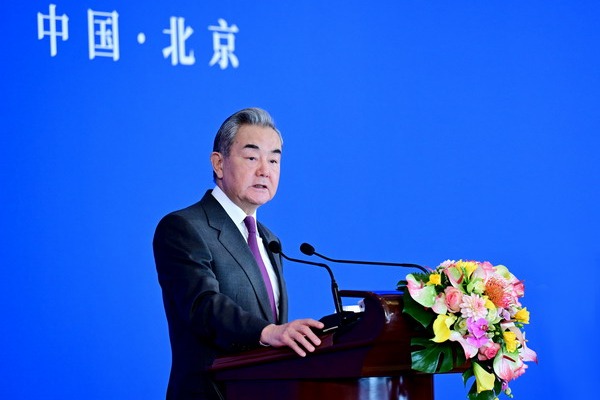EU leaders disagree with US' Cold War approach to China


When US President Joe Biden meets European Union leaders on Tuesday for the US-EU summit, he will continue to try to push the bloc into his anti-China alliance, but analysts say that EU leaders disagree with a US-type of Cold War approach against China.
EU leaders, such as German Chancellor Angela Merkel, European Council President Charles Michel and European Commission President Ursula von der Leyen, were reportedly among the ones refusing to endorse Biden's extreme hard-line statement on China at the G7 summit concluded in the United Kingdom on Sunday.
In Brussels, Biden will meet NATO allies on Monday at their first summit since 2018, and attend the first US-EU summit since 2014 on Tuesday before departing for Geneva for his meeting with Russian President Vladimir Putin on Wednesday.
Thorny issues on Trump-era steel and aluminum tariffs, the longstanding disputes over subsidies to Boeing and Airbus and coordination on technology policy are among topics at the Tuesday summit.
During the meeting, US and the EU are likely to announce a wide-ranging partnership around technology and trade, such as by setting up a so-called EU-US Trade and Technology Council.
The Biden administration has indicated a truce on some tit-for-tat trade retaliation with Europe to coax the EU into its anti-China alliance, including economic decoupling with China.
However, the EU doesn't see China as a threat the way US does. The EU has described its relations with China as a complex one of being a negotiation partner, an economic competitor and a systemic rival at the same time.
Fiona Hill, a senior fellow at the Center on the United States and Europe at the Brookings Institution, said decoupling with China is "virtually impossible" given China's huge investment in the US financial system. She pointed out that when US talked about making steel and aluminum all in the US like in a wartime scenario, it worried many Europeans.
"That gives Germans and others a great deal of concern, wondering if we're careening into indeed some kind Cold War or hot war confrontation with China," Hill, who served as deputy assistant to the US president and senior director for European and Russian affairs on the White House National Security Council from 2017 to 2019, told a seminar on Friday on Biden's trip and transatlantic relations.
The EU welcomes Biden after four years of tension with his predecessor Donald Trump, but EU is also wary of the divided US politics and the return of another populist president in the next US elections.
James Goldgeier, also a senior fellow at the Brookings Institution, said that whether Europe gets on board with the tough US policy on China depends on where people look at.
An expert on Europe, Goldgeier said that EU shares US concerns on some human rights issues, but it's a lot harder to have a total convergence on economic and technological issues since China is now EU's biggest trade partner.
China replaced the US as EU's largest trade partner for the first time in 2020. China and the EU concluded the negotiation for a Comprehensive Agreement on Investment on Dec 30.
While some members of the European Parliament have tried to halt the ratification of the agreement, European Council President Charles Michel defended the agreement last week.
"I know that there's a democratic debate in Europe on the question of investment agreement, but I'm convinced personally that what's on the table is a huge step in the right direction," he said.
Biden has framed US competition with China as against a different system, David Miliband, president and CEO of International Rescue Committee and a former British foreign secretary, said there is a responsibility to fashion cooperation with those in different systems.
"I think there are enough big issues where global cooperation is not just necessary but possible alongside system competition," he said on Friday.
Biden's hardline policy on China also drew criticism from Charles Kupchan, a senior fellow at the Council on Foreign Relations who served as senior official on European affairs in the Obama administration.
Kupchan called on Biden to correct course on foreign policy. He said that even if containment worked against the Soviet Union in the Cold War, a with-us-or-against-us strategy will not deliver the same results today, citing China's fast-growing economy and technological prowess and sizeable foreign investment.
"There is no going back to the decoupled, two-bloc global order of the Cold War," he wrote in a recent article on Project Syndicate.

































